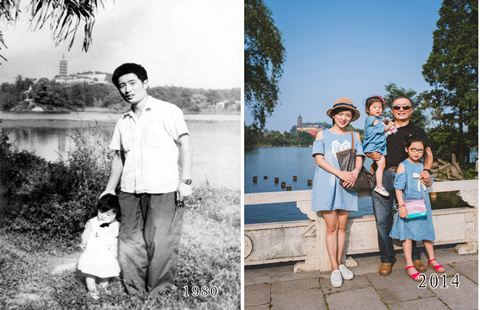For a vision of common, comprehensive, cooperative and sustainable security
Updated: 2015-02-09 07:53
(China Daily USA)
|
||||||||
Editor's Note: The article is an excerpt of the statement by Chinese State Councilor Yang Jiechi at the Opening Session of the 51st Munich Security Conference on Saturday.
This year marks the 70th anniversary of the end of World War II and the founding of the United Nations. This is an important year of historic significance. As we review the momentous journey traveled by the world over the past 70 years, we must be sober-minded about the challenges confronting us and, at the same time, doubly cherish the progress we have made in peace, security and development. A review of the past should serve as a guide for us in observing the future trend of the world.
Over the past 70 years, the world has maintained overall peace. The international community has put in place a collective security mechanism with the United Nations at its core. The purposes and principles of the UN Charter are the basic norms governing international relations. Since the end of the Cold War, the trend toward multi-polarity and greater democracy in international relations has gathered momentum, and the international balance of power is moving in favor of world peace.
Over the past 70 years, remarkable progress has been made in human development. Scientific and technological advancement and economic globalization are profoundly changing human society. Europe and other advanced economies have a solid economic foundation and strong capacity for innovation; and emerging markets and developing countries have maintained dynamic growth and have vast potential to be tapped. By complementing each other and working together, we can bring about steady growth of the world economy.
Over the past 70 years, cooperation within and between various regions has made important progress. The European integration process, which started early, has come a long way. Intra- and inter-regional cooperation of various kinds is flourishing in Asia, Africa and the Americas. Increasingly interconnected and interdependent, countries are forming a closely-knit community of shared destiny.
Both history and reality tell us that peace, development and cooperation are the common aspiration of the people of all countries and an irresistible trend of history. On the other hand, we should not fail to see that the world economic recovery is still sluggish; turbulence in some areas keeps flaring up; global challenges are increasing; and the threat of terrorism is notably on the rise. To uphold world peace and promote common development remains a difficult long-term task.
Peace should be safeguarded by all, development should be shared by all, opportunities should be created by all, and challenges should be met by all of us. We need to draw experience from history, and work together to build a better world.
China is a responsible member of the international community and a staunch force for upholding world peace and promoting common development. As Chinese President Xi Jinping has pointed out, China is committed to realizing the Chinese Dream of great national renewal. The Chinese Dream is a dream about peace, development and win-win cooperation. It is very much in line with the beautiful dreams of the people of other countries in the world. The pursuit of the Chinese Dream will benefit not only the Chinese but also the people of the whole world. China follows the path of peaceful development, and upholds justice and pursues shared interests. China calls on all countries to foster a sense of shared destiny, forge a new type of international relations of win-win cooperation, and build a peaceful, harmonious and prosperous world.
We are now in a challenging international security environment, and China calls for fostering a vision of common, comprehensive, cooperative and sustainable security. All countries should follow the trend of our times by pursuing peace, development and win-win cooperation and develop a new and win-win approach to security that is built, shared and maintained by all.
First, we need to promote common security. Countries have intertwined interests and common security challenges. Every country has both the right to equal participation in security affairs and the responsibility to maintain security in its region and the world at large. Its legitimate security concerns should be respected and addressed. As an old Chinese saying goes, "He who seeks success should first help others succeed." We need to maximize our common security interests to ensure security for both ourselves and others and jointly create a harmonious and stable security environment in both our respective regions and the world as a whole. China has entered into partnerships of various types with 75 countries, including many European countries, and five regional organizations. China is committed to maintaining common security and expanding common interests.
Second, we need to promote comprehensive security. In the world today, traditional and non-traditional security factors are interconnected and interact with each other. In the face of multiple and diverse security challenges, we should not take a fragmented and palliative approach that treats the symptoms only. Instead, we need to take a holistic approach to security issues. This means we need to take into consideration both history and reality as well as immediate and long-term, domestic and international, and traditional and non-traditional factors. And we need to take a multi-pronged strategy that covers political, economic, scientific and technological, social, cultural and security fields. We need to advance global security governance and address the security challenges facing mankind in a coordinated way.
China and the EU have set up a cyber taskforce and both are committed to building a peaceful, secure, resilient and open cyberspace.
China is firmly opposed to terrorism of all forms and is ready to strengthen security and counterterrorism cooperation with other countries. At the same time, China respects the diversity of civilizations and calls for dialogue and mutual learning among different civilizations and religions.
Third, we need to pursue cooperative security. A single line of silk does not make a thread and a single tree does not make a forest. No country, however powerful, can handle today's complex security challenges on its own. Countries need to foster a new vision of addressing security challenges through cooperation so as to promote peace and security through cooperation. We also need to seek peaceful settlement to disputes, conduct candid and in-depth dialogue and communication to increase strategic trust and reduce mutual suspicion, increase mutual understanding, accommodate each other's concerns, avoid conflict and confrontation, and seek benefits for all.
Fourth, we need to pursue sustainable security. For many countries, development is a paramount security issue. Social tensions and turmoil that ravage some countries and regions are caused by poverty and social division and have created a breeding ground for the spread of extremist ideology. Inability to develop themselves has gravely constrained some countries' efforts to maintain security and created more security risks for them. We need to strengthen security by addressing both the symptoms and root causes, work hard to improve people's lives, narrow the gap between the rich and the poor, promote common development of all countries and ensure sustainable security through sustainable development.
(China Daily USA 02/09/2015 page12)
- Asian American employment data are now seasonally adjusted
- China seeks compensation from Mexico after high-speed project suspended
- Brazil in 'eclipse', China 'shines': Expert
- China to build two nuclear power plants in Argentina
- Sri Lanka in U-turn on port project
- Russia expresses optimism about solution to Ukraine issue
Most Viewed
Editor's Picks

|

|

|

|

|

|
Today's Top News
Venezuela's economic woes to continue: Panel
China seeks compensation from Mexico after high-speed project suspended
China to build two nuclear power plants in Argentina
Xi plans to make state visit to US
Trade numbers take big hit in January
Search continues for 3 missing in TransAsia crash
Beautiful girl loses battle with cancer
Three more H7N9 cases reported in China's Guangdong
US Weekly

|

|















